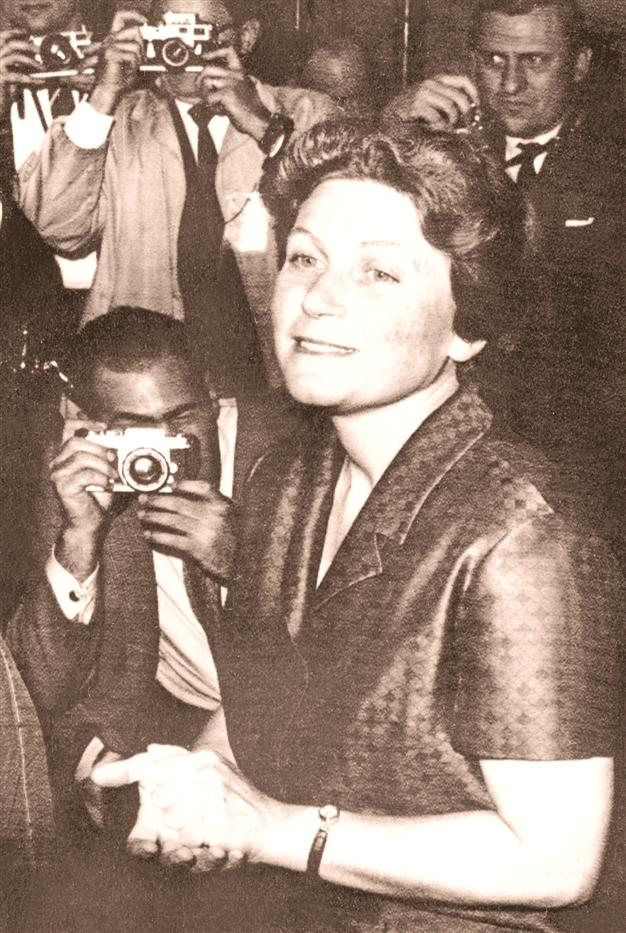Joseph Stalin’s only daughter dies in US
CHICAGO - Agence France-Presse

A handout file picture taken in 1967 shows Svetlana Alliluyeva, the only daughter of the Soviet dictator Joseph Stalin, giving a press conference in New York, USA.AFP photo
The only daughter of brutal Soviet tyrant Joseph Stalin -- who defected to the United States in 1967 and became a vocal critic of the Soviet Union -- has died at age 85, The New York Times reported Monday.
Born Svetlana Stalina on February 28, 1926, she led an epic and complex life that ended in obscurity and poverty after decades of wandering.
She died of colon cancer on November 22 in Richland Center, Wisconsin.
Her two name changes reflected her shifting fortunes. She took her mother’s last name, Alliluyeva, after Stalin’s 1953 death and fall from grace.
She then became Lana Peters in 1970 after her defection and brief marriage to American architect William Wesley Peters.
But she could never escape her father’s shadow.
In a 2010 interview with the Wisconsin State Journal, Peters said of her father: “He broke my life.”
“Wherever I go,” she said, “here, or Switzerland, or India, or wherever -- Australia, some island -- I always will be a political prisoner of my father’s name.”
Asked if she thought Stalin loved her, Peters said yes, adding, “I looked like his mother.”
“He was a very simple man,” she told the paper. “Very rude. Very cruel. There was nothing in him that was complicated. He was very simple with us. He loved me and he wanted me to be with him and become an educated Marxist.”
Known as “the little princess” of the Kremlin, she was a child celebrity in the Soviet Union, where thousands of babies were named Svetlana in her honor.
Stalin showered his daughter with presents and called her his “little sparrow” but became abusive and distant in her teenage years when he was consumed by World War II, the Times reported.
At 17, she fell in love with an older man -- a Jewish writer and filmmaker -- and a disapproving Stalin had him sent to a labor camp in Siberia.
She succeeded in defying her father’s objection to her next love -- a fellow student at Moscow University she married in 1945 and divorced in 1947 after they had one child, Iosif.
Her next marriage, in 1949, was to Yuri Zhdanov, the son of Stalin’s right-hand man Andrei Zhdanov. They had one daughter, Yekaterina, but soon divorced.
She lost most of her privileges after Stalin’s death, and Soviet officials refused to let her marry Brijesh Singh, an Indian Communist who was visiting Moscow. They did, however, reluctantly give her permission to take his ashes home to India after he became ill and died in early 1967.
Once in India, Peters evaded Soviet agents and sought asylum at the US embassy in New Delhi.
She denounced the Soviet regime at a news conference upon her arrival in New York and earned more than $2.5 million from her autobiography, “Twenty Letters to a Friend,” according to the Times. She recounted her defection in a second memoir, “Only One Year,” published in 1969.
Peters returned to Moscow in November 1984 -- where she denounced the West and said she had been a pet of the CIA -- after officials began to rehabilitate Stalin’s legacy and allowed her to communicate with the children she left behind.
She returned to the United States in April 1986 and disavowed her anti-Western statements. Friends told the Times she spent much of her life wandering from the United States to England, France and even a convent in Switzerland
















